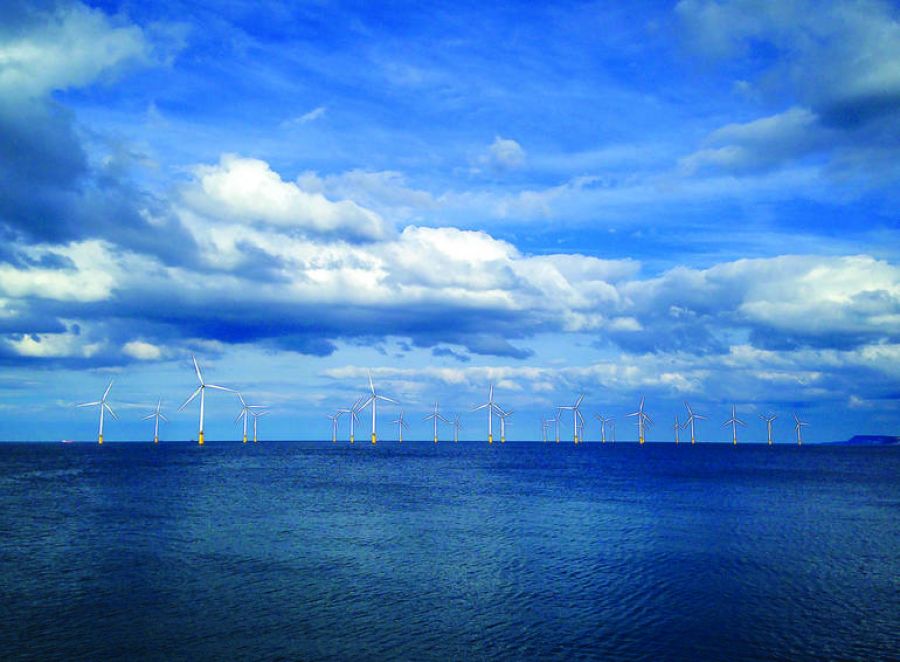The Latest Updates from New Jersey's Utilities Industry
PSE&G Focus on Clean Energy Jobs in NJ
NEWARK - The need to create more green jobs and to diversify the workforce in the energy sector have been goals in the energy sector for some time. Public Service Enterprise Group, through the release of its latest whitepaper, said it has found a way to do both, ROI-NJ reports.
The paper, “Delivering Energy Efficiency Jobs to Underserved Communities,” details Public Service Electric & Gas’ award-winning approach to addressing these issues through community-based recruitment, training and promotion of supplier diversity.
The paper was presented by Waltasia Mansano, manager of PSE&G’s Clean Energy Jobs program, at the 2024 American Council for an Energy-Efficient Economy Summer Study in Pacific Grove, California.
Mansano discussed how the PSE&G-sponsored CEJ Program — launched in 2020 in partnership with the New Jersey Department of Labor & Workforce Development and more than 40 community advocates — has been able to create a more inclusive clean energy workforce.
The program’s three primary areas of focus are: underserved community-based recruitment; training and associated supportive services; and promotion of hiring and supplier diversity. Together, these efforts uniquely bolster development of a more diverse workforce.
Since 2020, the program has made notable strides, including:
- 2,500-plus people placed into jobs
- Over 90 participants from underserved communities have graduated from the program’s On-the-Job-Training initiative
- 100-plus businesses helped to receive minority-, woman- or veteran-owned business enterprises certification
- 800-plus clean energy employees have been trained and upskilled, with a focus on supporting long-term careers and creating pathways to mid-to-senior-level positions
“The success of the Clean Energy Jobs Program is a testament to the power of public-private partnerships,” said Mansano. “The community and state support for this program has been critical, and we are grateful to our partners for helping us build the skilled, diverse workforce that New Jersey needs now and into the future.”
The Statewide Hispanic Chamber of Commerce of New Jersey has served as one of the founding members of the Clean Energy Jobs program steering committee since 2021.
CEO Carlos Medina said the impact has been great.
“Our collaboration with PSE&G has been important for advancing economic growth and diversity in clean energy,” he said. “By connecting diverse suppliers and supporting small businesses through certification programs, we enhance our network and broaden economic opportunities while promoting inclusion.”
Since 2020, the CEJ Program has earned multiple awards, including a 2023 DEI Impact Awards-Partnership and a 2022 Energy Equity Award and Best Practices Award from the Smart Energy Consumer Collaborative, as well as a 2023 Outstanding Achievement in DEI Leadership Award from the Association of Energy Services Professionals.
Karen Reif, vice president of renewables and energy solutions at PSE&G, said the program is a model.
“Our Clean Energy Jobs Program is helping to set a gold standard for workforce development in New Jersey,” she said. “We’re incredibly proud of the positive impact we’ve made on the state’s clean energy workforce and look forward to continuing our efforts to support and grow the industry.”
From 2022-23, the share of job postings requiring green skills almost doubled, going from 12.3% to 22.4%, an analysis by LinkedIn found. Women comprise only 28% of the STEM workforce related to the energy sector, with other minorities — such as Hispanics, Blacks and American Indians/Alaska Natives — also representing disproportionately small shares.
The CEJ program has made significant progress in diversifying the clean energy workforce. The program’s hiring data, compared to New Jersey and national averages, highlights the following comparisons:
- Female workers: Female workers accounted for 33% of hires, whereas this group typically comprises only 17-28% of green jobs in New Jersey (Council on the Green Economy 2022).
- Black or African American workers: This group made up 21% of hires — more than double the norm within green jobs in New Jersey (Council on the Green Economy 2022).
- Latino/Hispanic workers: This group accounted for 20% of hires, which is representative of New Jersey (U.S. Bureau of Labor Statistics 2021), yet higher than the national average.
